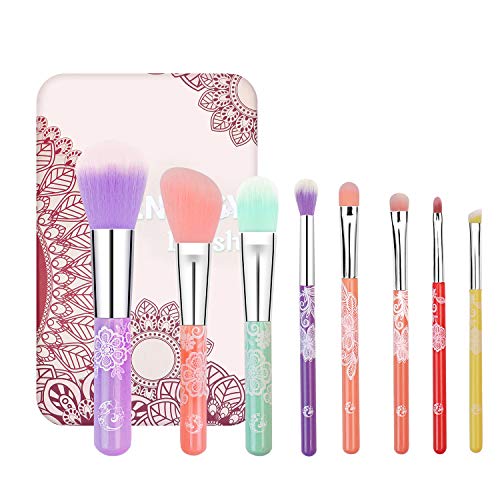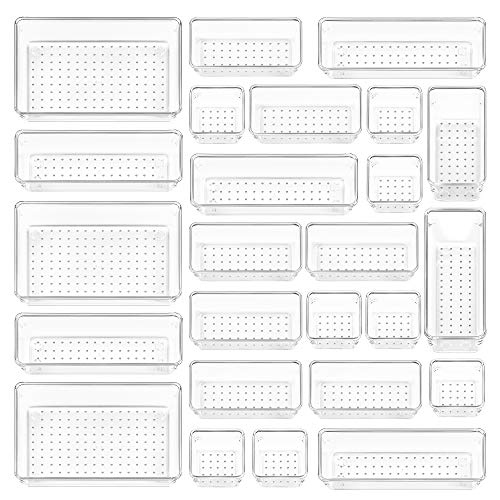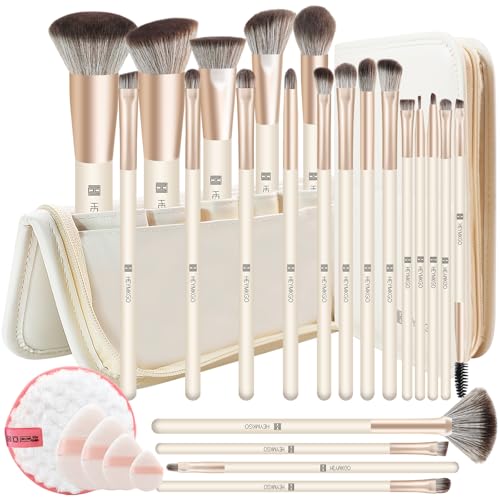You are using an out of date browser. It may not display this or other websites correctly.
You should upgrade or use an alternative browser.
You should upgrade or use an alternative browser.
Does anyone here use natural remedies to combat skin issues?
- Thread starter cdwdnw
- Start date

Help Support Makeuptalk.com forums:
This site may earn a commission from merchant affiliate
links, including eBay, Amazon, and others.
- Joined
- Apr 15, 2005
- Messages
- 5,222
- Reaction score
- 0
My grandma uses avocados on her face. Im not sure exactly what it does, but her skin feels like a babys butt!
Hopefully this is a bit helpfull
Natural Skin Care Recipe Found In Your Kitchen
Tea Digest Natural skin care and home remedies
Hopefully this is a bit helpfull
Natural Skin Care Recipe Found In Your Kitchen
Tea Digest Natural skin care and home remedies
- Joined
- Dec 14, 2006
- Messages
- 193
- Reaction score
- 0
from Paulas Choice:
grape seed oil. Emollient oil that also has good antioxidant properties
A lot of the buzz surrounding grape extracts started with a story in Consumer Reports in November 1999 that ranked grape juice just above green tea and blueberries as having strong antioxidant properties. However, the benefits reported both in Consumer Reports and a lead story in USA Today (February 2, 2000) had to do with drinking it, not putting it on the skin. There are no published studies indicating that grapes applied topically can affect the wrinkling process. But when it comes to skin care, there are lots of unpublished studies that prove all kinds of things. For example, one cosmetics line points to research by Dr. Stephen Herber of the St. Helena Institute for Plastic Surgery, who conducted a study on the benefits of grape seed. Not surprisingly, St. Helena is in the heart of California's wine country. This "study" had 16 volunteers who used pure milled grape seed extract as a topical application to their skin. Herber found that 88% of the volunteers reported improved texture to their facial skin. It only takes a cursory look to see that this study wasn't done double-blind, that a placebo wasn't used, and we have no idea of the status of the participants' skin before they started. Even if you believe the results of this study, the study used a pure concentration of the substance on the skin, not a product that contained a small amount of the extract.
Still, none of that diminishes the potential grape extract may have for skin, because, grape seed does contain proanthocyanidin, considered to be a very potent antioxidant (source: Current Pharmaceutical Biotechnology, June 2001, pages 187–200). But there is no research establishing its efficacy on skin, save for a study that looked at the wound-healing properties of proanthocyanidins and the tannins found in grape seeds. However, this study examined dermal wound-healing of mouse skin, which doesn't necessarily translate to human skin, and remember, wrinkles are not wounds (once you have a wrinkle, it does not go through a healing process the way a wound does). (Source: Free Radical Biology and Medicine, Volume 33, Issue 8, October 2002, pages 1089--1096.) The proanthocyanidins in grape seeds have also been shown to have anti-tumor abilities, though this was also on mouse skin (Source: Carcinogensis, Volume 20, Number 9, September 1999, pages 1737-1745). Again, tumors are not wrinkles, so these studies don't mean a thing if you're looking to grapes as the anti-wrinkle answer. What they do consistently point to is that components of grapes and grape seed exhibit a strong effect on preventing lipid peroxidation (oxidation of fat cells by free radicals), which is precisely what a good antioxidant should do, and grapes are not alone in their ability to mitigate and prevent free-radical damage to cells.
Antioxidants are a big issue, and there is every reason to believe that there will be great strides in this area. For now, though, it's too early to suggest whether or not any of them work on the surface of skin to affect wrinkling in a positive way.
Sounds very promising, I would go for it!
grape seed oil. Emollient oil that also has good antioxidant properties
A lot of the buzz surrounding grape extracts started with a story in Consumer Reports in November 1999 that ranked grape juice just above green tea and blueberries as having strong antioxidant properties. However, the benefits reported both in Consumer Reports and a lead story in USA Today (February 2, 2000) had to do with drinking it, not putting it on the skin. There are no published studies indicating that grapes applied topically can affect the wrinkling process. But when it comes to skin care, there are lots of unpublished studies that prove all kinds of things. For example, one cosmetics line points to research by Dr. Stephen Herber of the St. Helena Institute for Plastic Surgery, who conducted a study on the benefits of grape seed. Not surprisingly, St. Helena is in the heart of California's wine country. This "study" had 16 volunteers who used pure milled grape seed extract as a topical application to their skin. Herber found that 88% of the volunteers reported improved texture to their facial skin. It only takes a cursory look to see that this study wasn't done double-blind, that a placebo wasn't used, and we have no idea of the status of the participants' skin before they started. Even if you believe the results of this study, the study used a pure concentration of the substance on the skin, not a product that contained a small amount of the extract.
Still, none of that diminishes the potential grape extract may have for skin, because, grape seed does contain proanthocyanidin, considered to be a very potent antioxidant (source: Current Pharmaceutical Biotechnology, June 2001, pages 187–200). But there is no research establishing its efficacy on skin, save for a study that looked at the wound-healing properties of proanthocyanidins and the tannins found in grape seeds. However, this study examined dermal wound-healing of mouse skin, which doesn't necessarily translate to human skin, and remember, wrinkles are not wounds (once you have a wrinkle, it does not go through a healing process the way a wound does). (Source: Free Radical Biology and Medicine, Volume 33, Issue 8, October 2002, pages 1089--1096.) The proanthocyanidins in grape seeds have also been shown to have anti-tumor abilities, though this was also on mouse skin (Source: Carcinogensis, Volume 20, Number 9, September 1999, pages 1737-1745). Again, tumors are not wrinkles, so these studies don't mean a thing if you're looking to grapes as the anti-wrinkle answer. What they do consistently point to is that components of grapes and grape seed exhibit a strong effect on preventing lipid peroxidation (oxidation of fat cells by free radicals), which is precisely what a good antioxidant should do, and grapes are not alone in their ability to mitigate and prevent free-radical damage to cells.
Antioxidants are a big issue, and there is every reason to believe that there will be great strides in this area. For now, though, it's too early to suggest whether or not any of them work on the surface of skin to affect wrinkling in a positive way.
Sounds very promising, I would go for it!
- Joined
- Nov 24, 2006
- Messages
- 1,334
- Reaction score
- 0
I use witch hazel, and I LOVE it. It is definitely natural- improves acne, and has helped make my pores appear smaller. The smell takes some getting used to, but it is weel worth it! I use it as a toner, twice a day.
woops, "weel" should be read well!:2:
woops, "weel" should be read well!:2:

$16.99 ($2.12 / Count)
ENERGY Colorful Rainbow Makeup Powder Brushes Set With Case Beauty Tools with Foundation Face Blending Blush Concealer Brow Eye Shadow Brushes Essential Cosmetics for Girl Women (8 Pcs)
ENERGY Makeup Brush Store

$35.99 ($3.60 / Count)
$44.87 ($4.49 / Count)
Jessup Makeup Brushes Set 10pcs, Double Sided Foundation Contour Blush Highlight Blending Eyebrow Brush Eyeshadow Eyeliner Concealer Brush, Bright Cyan Cruelty Free Cosmetic Tools T500
Jessup beauty

$19.16
$27.00
Robert Jones' Makeup Masterclass: A Complete Course in Makeup for All Levels, Beginner to Advanced
Amazon.com

$18.49 ($0.74 / Count)
$21.99 ($0.88 / Count)
Vtopmart 25 PCS Clear Plastic Drawer Organizers Set, 4-Size Versatile Bathroom and Vanity Drawer Organizer Trays, Storage Bins for Makeup, Bedroom, Kitchen Gadgets Utensils and Office
Vtopmart Direct

$22.99
$26.99
Makeup Organizer with 3 Drawers, Cosmetic Display Cases, Makeup Storage Box (3 Drawers) (white)
PTBSZCWY Home

$11.99
$14.99
Masisrs Clear Makeup Organizer - Cosmetic Storage Organizer - 16 Compartments - Easily Sort Make Up & Jewelry - 4 Drawer Vanity Organizer - Elegant Look - Transparent Design - Makeup Holder
Handy Laundry Products Corp.

$14.99 ($0.75 / Count)
$24.99 ($1.25 / Count)
BS-MALL Makeup Brushes Set Professional – 20Pcs Premium Synthetic Foundation Powder Concealers Eye shadows Blush Makeup Brushes with Black case
BS-MALL Direct

$24.99 ($8.33 / Count)
Vtopmart 3 Tier Clear Makeup Organizer with Drawer, Cosmetic Storage for Dresser Countertop and Bathroom Vanity, Beauty Holder for Lipstick Brush Skincare
Vtopmart Direct
- Joined
- Nov 24, 2006
- Messages
- 886
- Reaction score
- 0
- Joined
- Nov 20, 2006
- Messages
- 2,452
- Reaction score
- 1
The most natural I get is using pure extra-virgin olive oil on my face as a night moisturizer. Even though I have combination skin, it doesn't clog my pores at all and makes my skin look so smooth and glowy.
- Joined
- Jun 7, 2006
- Messages
- 60
- Reaction score
- 0
Thanks everyone - I had read about the olive oil too but I couldn't remember what it was for specifically.  /emoticons/[email protected] 2x" width="20" height="20" />
/emoticons/[email protected] 2x" width="20" height="20" />
- Joined
- Feb 27, 2006
- Messages
- 1,252
- Reaction score
- 0
I use Avene Thermal Water Spray for my skin redness (its brilliant) and I use jojoba oil for dry patches on my face.. I've also ordered some pure aloe vera gel  /emoticons/[email protected] 2x" width="20" height="20" /> x
/emoticons/[email protected] 2x" width="20" height="20" /> x
S
SewAmazing
Guest
I swear by baking soda to exfoliate my skin and control blemishes. I follow this treatment with no name brand Noxema to wash. I also use Milk of Magnesia for a drying mask. Cornstarch is great under or over make-up. Really absorbs all that oil...


























